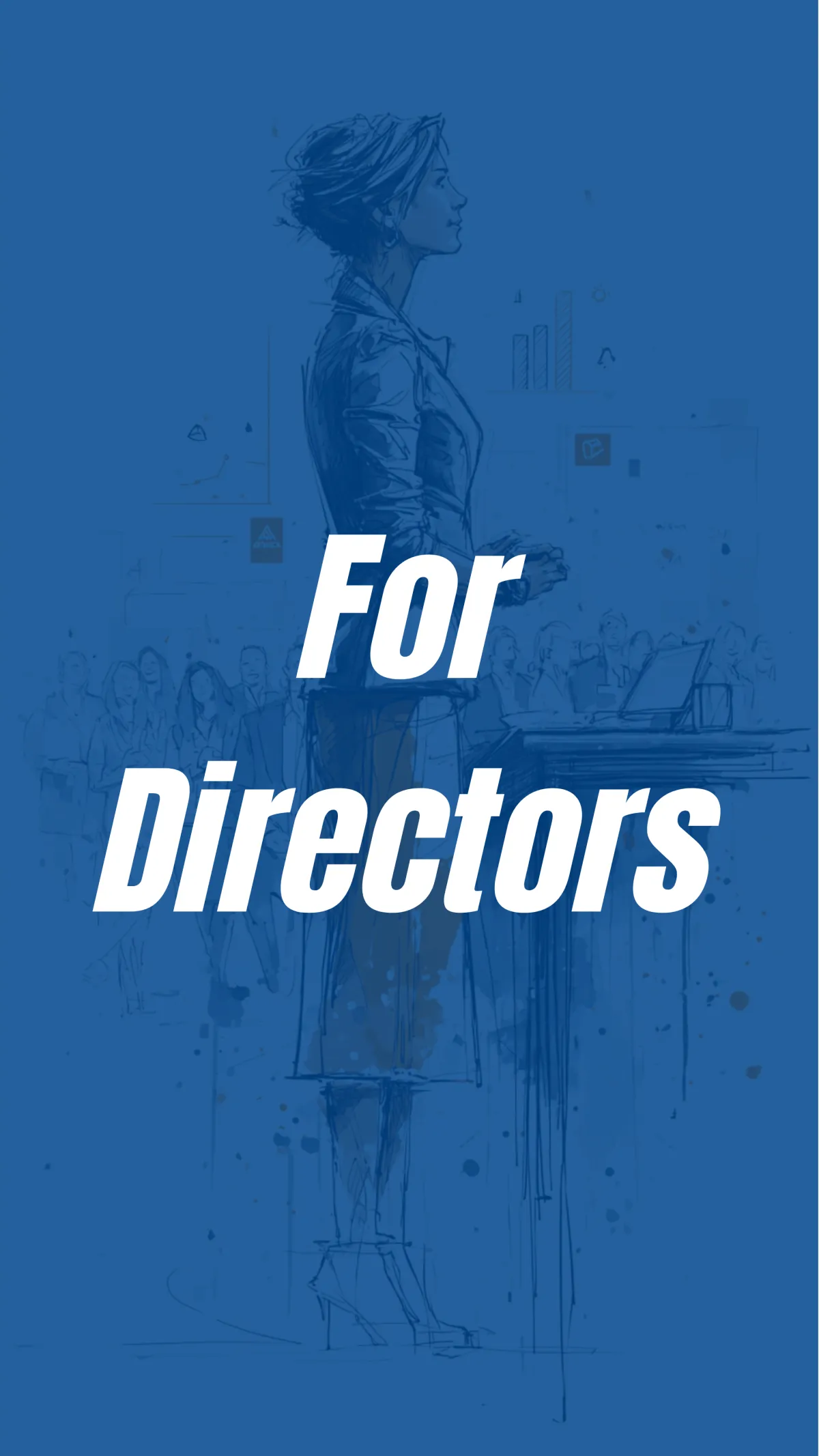
What's The Perfect Real Estate Event Flow?
Planning the perfect real estate event takes more than a great idea—it requires strategic planning, flawless execution, and a focus on delivering real value to your attendees. Before diving into décor or speaker lineups, it's important to understand what's the perfect real estate event flow. Start by defining your goals. Are you aiming to generate leads, boost brand visibility, or position yourself as a local expert?
A well-executed event isn’t just about logistics—it’s about crafting an experience that feels both polished and personal. From anticipating challenges to creating a welcoming atmosphere, every detail matters. When done right, your event becomes more than a one-time gathering; it becomes a relationship-building opportunity that drives long-term business growth.
Ready to turn these insights into real revenue for your real estate business? Stop struggling with marketing that doesn't deliver results. In just 20 minutes, we'll create a customized plan to help you implement these strategies and grow your business. No fluff, no cookie-cutter approaches – just practical solutions tailored to your specific challenges. Book your complimentary discovery call today at https://lesix.agency/discovery and start seeing real results.
Setting the Stage: Pre-Event Planning
The perfect real estate event starts long before your guests arrive; it begins with thorough planning and preparation. What's the perfect real estate event flow? First, define your event's purpose clearly. Are you showcasing new listings in an open house, aiming to build connections with a networking event, hosting a client appreciation event to thank loyal customers, or educating fellow estate agents on current market conditions?
A clear purpose will guide all subsequent decisions, from guest list to content. This foundational step is vital for organizing successful real estate events that meet specific objectives. Knowing your goal helps in creating an event that feels good for everyone involved.

Defining Your Event Objectives and Budget
Once your purpose is set, establish clear objectives. What do you want to achieve? This could be generating a certain number of leads, securing new listings, or enhancing your brand reputation among active real estate professionals and real estate investors. Setting measurable goals will help you gauge the success of your event later on.
Next, determine your event budget. A detailed budget should account for all potential expenses, including the event space, catering, marketing materials, any technology rentals, fees for key speakers, and perhaps small gift bags. Allocating funds wisely is important for a financially sound and successful real estate event.
Choosing the Right Venue and Date
Choosing a suitable venue is another important early step. Consider factors like location accessibility, parking, capacity, ambiance, and available amenities. A spacious, well-lit area with good acoustics can make a world of difference for any social event or professional gathering, be it a happy hour or a formal presentation. The event space should align with the type of event; a coffee shop might be great for informal networking, while a conference room suits an educational seminar.
Selecting the right date and time is also very important. Check for competing local events or holidays that might affect attendance. Give potential attendees enough notice, especially if you plan to invite people from out of town or busy professionals.
Creating a Detailed Timeline
A detailed event timeline is your roadmap. This document should include every task, from initial brainstorming and sending out invitations to post-event follow-up. Assign responsibilities and deadlines for each item to keep planning on track.
Don't forget to build in buffer time for unexpected hiccups, as even the best-planned estate events can face unforeseen challenges. This timeline will be instrumental in making sure everything runs smoothly on the day. For larger events, consider mapping out an hour event schedule within the main timeline.
Crafting Your Invite List and Managing RSVPs
Who you invite can make or break your real estate event. Think carefully about your target audience. Are you aiming for first-time homebuyers, seasoned real estate investors, fellow real estate professionals, or past clients for an appreciation event?
Once you've identified your ideal attendees, craft personalized invitations. Make them feel special and give them a compelling reason for attending real estate events you host. You can use professional email templates to send invitations efficiently, and consider a mix of digital and physical invites for maximum impact.
It is very important to collect RSVPs. This helps you get an accurate headcount for catering, seating, and materials. Use an online RSVP system to make it easy for guests to respond and for you to track attendance for your upcoming appreciation event ideas or open houses.
What's the Perfect Real Estate Event Flow? The Main Event
Now, let's get into the specifics of the event day itself. What's the perfect real estate event flow on the day? It all starts with a warm welcome, making guests feel comfortable from the moment they arrive.
Registration and Welcome: Making Guests Feel Valued
First impressions count significantly. Set up a smooth and efficient registration process. Have friendly staff or volunteers ready to greet guests by name, check them in, and provide any necessary materials, like name tags or agendas. Consider using technology like QR codes or event management apps to speed things up and reduce queues.
Once inside, guests should feel immediately welcomed and comfortable. Think about having a small welcome reception area with light refreshments and subtle background music. This gives early arrivals a chance to mingle, network, and sets a positive, welcoming atmosphere for the entire estate event.
Offering small, thoughtful gift bags at registration can also be a nice touch, especially for a client appreciation event. This gesture contributes to making guests feel valued. These initial moments are critical for setting the tone for a successful real estate gathering.
Opening Remarks: Setting the Tone
Start your event with engaging opening remarks. Your introduction should be brief but impactful, lasting no more than 5-10 minutes. Thank everyone for attending real estate events like yours, clearly outline the agenda, and build excitement for what's to come.
If you have key speakers or special guests, this is the time to introduce them. Make sure they understand the tone and purpose of your event so their presentation aligns with your overall goals. A strong opening can energize the audience and make them look forward to the main content.
Main Content Delivery: Engaging Your Audience
This is where you deliver the core value of your event. If you're showcasing properties at an open house, consider a guided tour, high-quality brochures with floor plans, and virtual tour stations. For educational events or seminars designed to share knowledge, mix up your presentation styles to keep things engaging and cater to different learning preferences.
Remember to build in short breaks, especially for longer events perhaps lasting more than an hour event. These breaks give attendees a chance to digest information, check messages, refresh themselves, and engage in informal real estate networking. For events small and large, breaks help maintain energy and focus throughout the day.
The content should be relevant and valuable. For instance, an educational segment might cover current market conditions, investment strategies for real estate investors, or updates on property management services. Well-prepared content demonstrates professionalism and provides tangible takeaways for attendees.
Interactive Elements: Fostering Engagement
Don't just talk at your guests – interact with them. Consider adding interactive elements like Q&A sessions after presentations, lively panel discussions with industry experts, or even hands-on workshops. These activities can be great for breaking up longer presentations, encouraging participation, and keeping energy levels high.
For property showcases, think about creative ways to let attendees explore. Virtual reality tours, 3D models, or beautifully staged rooms can help bring listings to life and create engaging experiences. For networking events, facilitated discussions or icebreakers can help people connect more easily.
A charity event component, like a silent auction or a portion of proceeds going to a local cause, can also add a meaningful interactive layer. Such elements help your event stand out and show community involvement. The goal is to create an active, memorable experience for everyone attending real estate gatherings you host.
Networking Opportunities: Connecting People
Many attendees come to real estate events specifically for networking opportunities. Build in dedicated time for this. You could have a structured networking session with ice-breaker activities, or simply create comfortable spaces conducive to casual conversations during a happy hour or coffee break.
Consider using name tags that include not just names but perhaps areas of interest or industry roles to spark conversations. Having a stack of your business cards readily available is essential, and subtly encourage guests to exchange theirs. Facilitating connections is a key function of many successful real estate events, fostering relationships between real estate agents, clients, and potential partners in the real estate industry.
A designated networking lounge, perhaps near the refreshments, can be a great idea. For larger events, a networking app can help attendees find and connect with specific individuals. Making it easy for people to connect adds immense value to their event experience and reflects well on you as the host.
Wrapping Up: Ending on a High Note
As your event winds down, it's important to end on a positive and memorable note. This is your last chance to reinforce key messages and leave a lasting impression, making guests feel good about their time spent.
Closing Remarks: Leaving a Lasting Impression
Use your closing remarks to summarize the key takeaways from the event and reinforce your main message. Thank your attendees for their time, express gratitude to any speakers, sponsors, and volunteers who helped make the event a success. If appropriate, tease future real estate events or initiatives to keep people engaged with your brand and looking forward to future real interactions.
A brief, sincere closing can be very effective. Avoid introducing new, complex information; instead, focus on appreciation and a call to action if relevant (e.g., "Feel free to schedule a follow-up consultation"). This helps to make sure the event covers its intended scope cleanly.
Follow-Up Plan: Continuing the Conversation
The perfect real estate event flow doesn't end when the last guest leaves. A solid follow-up plan is essential to capitalize on the connections made and the interest generated. This could include sending personalized thank-you emails or notes within 24-48 hours. Using pre-prepared email templates can streamline this process.
Share event highlights, photos, or presentation materials via email or on social media. For promising leads, schedule one-on-one meetings or calls to discuss their specific needs further. A thoughtful follow-up strategy shows professionalism and keeps the momentum going from your successful real estate event.
Consider creating a post-event survey to gather feedback. Ask about their experience, what they found most valuable, and suggestions for improvement. This feedback is invaluable for planning future appreciation events, open houses, or networking event gatherings, helping to refine your approach each time.
Special Considerations for Different Event Types
While the basic flow principles apply universally, different types of real estate events may require specific adjustments to maximize their impact. Understanding these nuances is vital for hosting truly effective gatherings. Here's a look at some common event ideas and their specific needs:

Open Houses: Creating a Welcoming Atmosphere
For open houses, the primary goal is to showcase a property effectively and create a welcoming atmosphere. Ensure the property is clean, well-staged, and inviting. Have clear signage and perhaps soft music playing. Provide information packets for each room or key area, detailing features and benefits.
Consider offering light refreshments that match the property's style or the time of day. Be available to answer questions but also allow visitors to explore at their own pace. End with a clear call-to-action, such as signing a guest register for follow-up or discussing next steps if they are interested buyers. For investment properties, this is also a chance to highlight potential returns or services property management can offer.
Educational Seminars: Delivering Value
For educational events, like seminars or workshops for real estate agents or real estate investors, your content must be well-structured, informative, and easy to follow. Topics could range from understanding current market conditions to advanced investment strategies. Employ engaging key speakers or facilitate a panel discussion to share knowledge effectively.
Provide handouts, workbooks, or digital resources for attendees to take home. Always end with a dedicated Q&A session to address any lingering questions and reinforce learning. These events position you as an authority in the real estate industry.
Networking Events: Facilitating Connections
For networking-focused events, the main objective is to create an environment that encourages conversation and connection. This could be a dedicated real estate networking event, a social event like a happy hour at a local bar, a wine tasting, or even an informal gathering at a coffee shop. Consider themed areas, icebreaker activities, or even speed networking sessions to help people connect.
The event space should allow for easy movement and conversation. Provide name tags and perhaps a list of attendees (with their consent). Your role as host is to facilitate introductions and help people find common ground, fostering a vibrant estate networking environment. Some creative appreciation event ideas, like hosting a group outing to sporting events, can also incorporate networking.
Client Appreciation Events: Showing Gratitude
Client appreciation events are all about thanking your past and current clients, strengthening relationships, and encouraging referrals. These appreciation events should be fun, relaxed, and personalized. Ideas range from a catered party event, a family picnic, or a special outing.
Focus on making your guests feel special and valued. Small, thoughtful gifts or experiences can go a long way. The key is genuine appreciation, which can lead to long-term loyalty and advocacy for your real estate services.
Leveraging Technology for a Smoother Event Flow
Technology can play a significant part in creating the perfect real estate event flow, making the process more efficient for you and more enjoyable for your attendees. From registration and promotion to follow-up, various tools are available to streamline every step. Proper use of technology can help your event run smoothly.
Event Management Software: Streamlining Operations
Consider using event management software. These platforms can handle online registrations, ticket sales (if applicable), attendee communication using email templates, and even mobile check-ins on event day. Many also offer features to help you create engaging event websites, manage agendas, and send automated reminders to those who collect RSVPs.
Post-event, this software can assist with distributing surveys and analyzing attendee data, providing valuable insights. This data can help you understand attendee demographics, engagement levels, and overall satisfaction, aiding in planning future successful real estate events. This helps in making your event planning process much smoother.
Virtual and Hybrid Events: Expanding Your Reach
Don't overlook the potential of virtual and hybrid real estate events. Virtual events allow you to reach a broader audience without geographical limitations, while hybrid events offer both in-person and online attendance options. This flexibility can be particularly useful for educational content or when targeting attendees from diverse locations, including active real estate professionals globally.
For these formats, reliable technology and a strong media presence are important. You'll need good video conferencing software, engaging virtual presentation tools, and possibly a dedicated platform for virtual networking. Promoting these events effectively through social media and other digital channels is also vital to generate excitement and maximize attendance.
Platforms can help create engaging online experiences with interactive polls, Q&A features, and virtual breakout rooms. Make sure you have technical support available to handle any issues that may arise during the event. A well-executed virtual or hybrid event can significantly enhance your reach and impact in the estate industry.
Measuring Success: Post-Event Analysis
After your real estate event concludes and the follow-ups are sent, take time to thoroughly analyze its success. This evaluation is more than just a quick review; it's a deep look at what worked, what didn't, and how you can improve. This process is fundamental for refining your strategy for future real estate endeavors.
Look at a variety of metrics, such as final attendance rates versus RSVPs, lead generation numbers, and engagement levels during interactive sessions. Review feedback scores from post-event surveys carefully. This quantitative and qualitative data can help you refine your approach and demonstrate the value of your events, making it easier to justify the event budget for future functions.
Consider tracking long-term outcomes as well. Did the event lead to new client relationships, closed deals, or increased referrals? Did it enhance your brand recognition or establish you as a thought leader among real estate agents or real estate investors? These insights are crucial for understanding the true return on investment and for planning an even more successful real estate event next time, contributing to a feeling that your efforts are truly impactful and it feels good to achieve your goals.
Conclusion
So, what's the perfect real estate event flow? It's a thoughtfully orchestrated experience that engages your attendees from their first interaction with your invitation to your final follow-up message. It delivers genuine value, whether through information, networking, or appreciation, and leaves a lasting positive impression, making guests feel good about their participation.
By carefully planning each stage—from meticulous pre-event preparation, defining your event budget, and crafting how you invite people, to creating a smooth on-the-day execution and diligent post-event follow-up—you can create a seamless experience. This approach helps you achieve your specific goals, whether for open houses, client appreciation events, or dynamic networking event gatherings. The best event covers all these bases effectively.
Remember, the foundation of a successful real estate event lies in understanding your audience, delivering valuable content relevant to the estate industry, and creating ample opportunities for meaningful interactions. With these elements in place, from small informal meetups to larger, more structured occasions, you're well on your way to hosting standout real estate events. These gatherings will not only benefit your attendees but also significantly contribute to the growth and success of your future real estate business.
Don't let another day pass without a clear marketing strategy that actually works. In just 20 minutes, we can develop a customized plan to help you implement these ideas and start generating real revenue. Our discovery calls have helped hundreds of real estate professionals just like you transform their marketing from a source of stress to a growth engine. Take the next step now – visit https://lesix.agency/discovery to book your complimentary session and start building the business you deserve.










